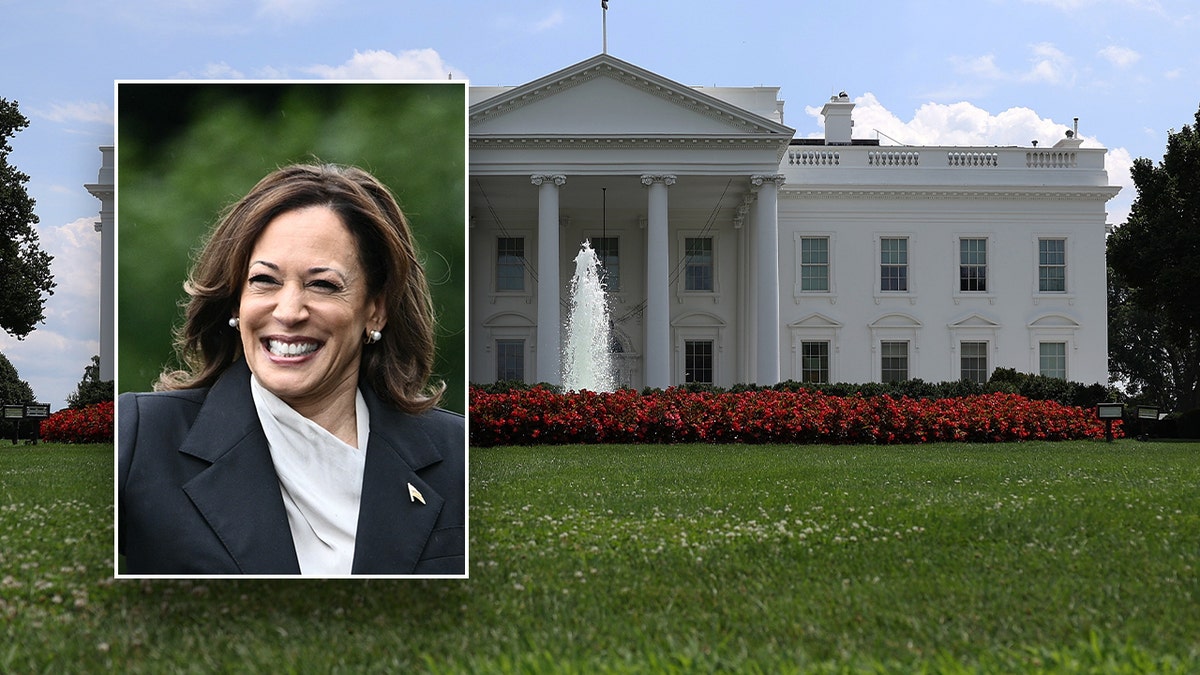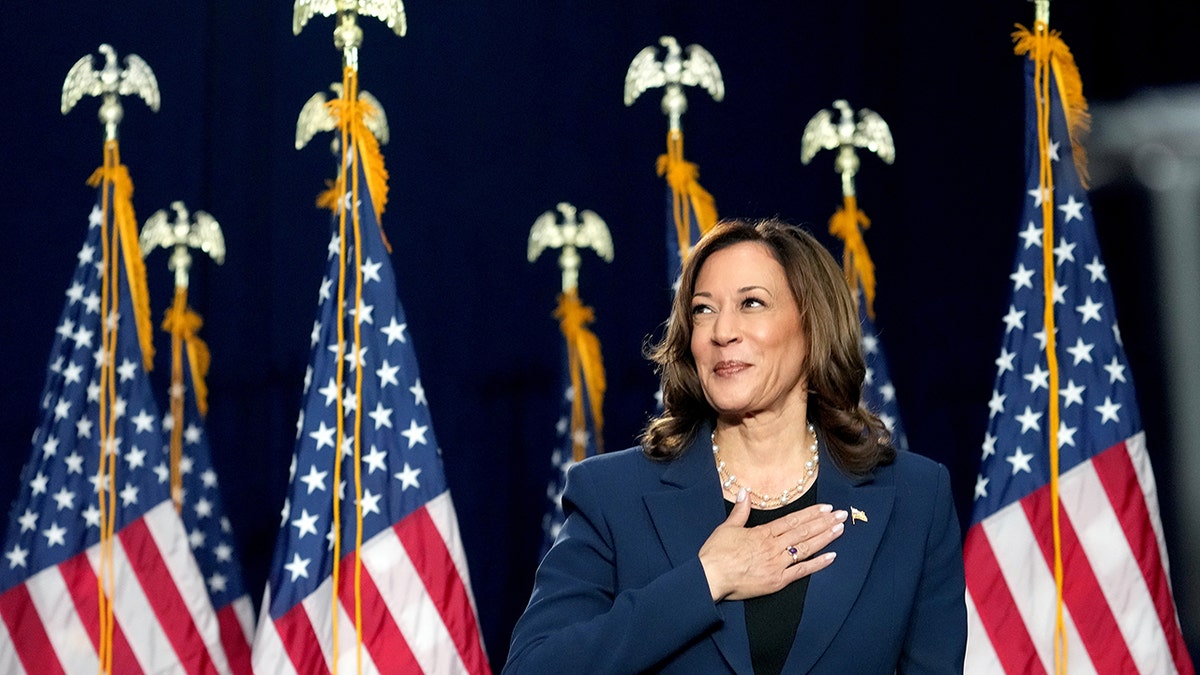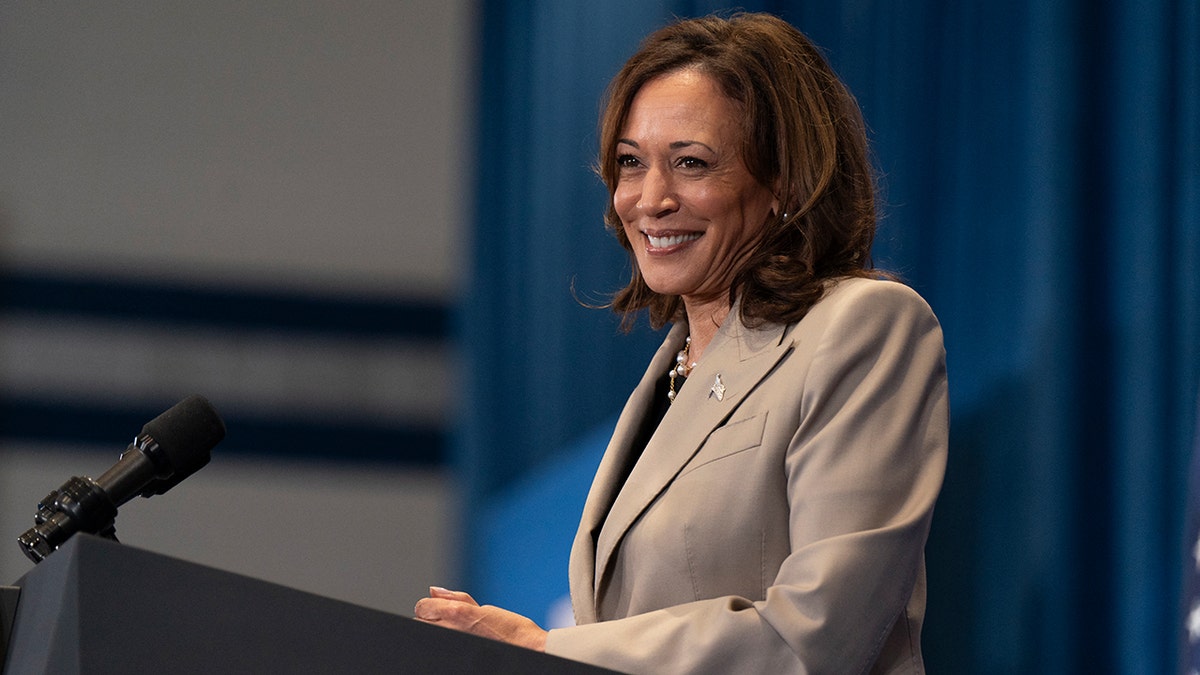Vice President Kamala Harris got her start in politics at age 29, when she was just out of law school, at the Alameda County District Attorney’s Office, where she met a 60-year-old kingmaker: California Assembly Speaker Willie Brown — arguably then the state’s most powerful politician.
Brown, while estranged from his wife, remained married. However, socially, he and Harris were seen everywhere and never denied being close. Brown appointed Harris to several well-paid state commissions: the state Insurance Commission, the state Unemployment Insurance Appeals Board and later, the California Medical Assistance Commission.
Harris came from a learned household. She was born in Oakland, California, to an Indian-born mother and a Jamaican-born father. Both were professors — one at Berkeley, the other at Stanford. Harris’ parents divorced when she was 7. Following her parents’ split, she moved to Illinois, then to Quebec, Canada, alongside her sister and mother.
After high school, Harris attended Howard University, where she joined the debate team and claimed to demonstrate “almost every weekend.” Later, she attended Hastings College of Law, where, like many of her classmates, she failed her first attempt at the California bar exam, but she passed the second time.
KAMALA HARRIS REACTS TO ANTI-ISRAEL RIOTS AT DC’S UNION STATION

Vice President Kamala Harris is running for president of the United States. (Getty Images)
In 1998, Harris took a job at the San Francisco District Attorney’s Office, but was later demoted after opposing a measure to try juveniles as adults for felony crimes.
After quitting, Harris took a job in the city attorney’s office, and with Brown’s help, raised $600,000 to defeat her former boss to become San Francisco DA. The city’s campaign ethics board fined Harris $30,000 – the highest fine ever levied at the time – for violating campaign finance limits.
“I made a very conscious and deliberate decision to become a prosecutor,” she said during a 2003 debate. “I think San Francisco wants a progressive district attorney who is also effective.”
As San Francisco DA, she became a controversial figure for opposing the death penalty — even for cop killers — and pursued three-strikes convictions only when they involved violent felonies.
After a man murdered officer Isaac Espinoza and Harris refused to pursue the death penalty, Harris received a rare rebuke from Sen. Dianne Feinstein.
“I think this district attorney made a very big mistake. As a matter of fact, if I had known she had said that in her campaign, I never would have supported her,” Feinsein said at the time.
As district attorney, Harris prosecuted marijuana crimes but rarely sought prison time.

Vice President Kamala Harris arrives for a campaign event in Milwaukee on Tuesday, July 23, 2024. (Daniel Steinle/Bloomberg via Getty Images)
HOW VP HARRIS IS NARROWING DOWN HER LIST OF VICE PRESIDENTIAL CANDIDATES 2 WEEKS BEFORE DNC: REPORT
In 2010, she became the first woman to serve as California’s attorney general, where she opposed the state’s ban on affirmative action and asked the state Supreme Court to “reaffirm its decision that public colleges and universities may consider race as one factor in admissions decisions.” The U.S. Supreme Court has ruled affirmative action unconstitutional. As AG, she prioritized environmental crimes, obtaining millions in fines from oil companies for failing to monitor underground storage leaks.
In 2016, she ran for U.S. senator and won by outmaneuvering Rep. Loretta Sanchez for the union and Latino vote. Harris also had the support of then-President Obama, who called her brilliant, dedicated and tough, adding, “She also happens to be, by far, the best-looking attorney general in the country.”

Vice President Kamala Harris speaks during a campaign event at Westover High School in Fayetteville, North Carolina, on July 18, 2024. (ALLISON JOYCE/AFP via Getty Images)
Harris’ appeal is partly demographic, but her law enforcement background also made her an appealing running mate in the wake of the Black Lives Matter protests and rising crime in some cities.
In 2019, Harris dismissed criticism of her record as a prosecutor for jailing marijuana offenders and even joked about her own previous cannabis use.
“Have you ever smoked?” she was asked on the “Breakfast Club” radio show in 2019. “I have, and I inhaled. I did it, I did it, and it was a long time ago,” she admitted.
As district attorney, however, she pushed for higher bail for gun crimes and sought minimum 90-day sentences for possession of concealed or loaded weapons.
Later, as a presidential candidate, Harris said she would pursue universal background checks and a ban on assault-style rifles.
“I will give the United States Congress 100 days to get their act together and have the courage to pass reasonable gun safety laws and if they fail to do it, then I will take executive action,” she said during a CNN town hall in December 2019.
CNN anchor Jake Tapper also suggested to Harris that her “Medicare-for-all” proposal might eliminate private health insurance.
Harris’ defense was, “The idea is, everyone gets access to medical care, and you don’t have to go through the process of going through an insurance company, having them giving you approval, going through the paperwork … let’s eliminate that. Let’s move on.”
Her signature tax proposal cost an estimated $3 billion. It would have provided a $3,000 tax credit for individuals and $6,000 for married couples. She also proposed lowering pay disparities by requiring large companies to pay men and women in similar jobs equally.
Another proposal aimed at raising teacher pay by $13,500. In a 2020 campaign video she explained her economic approach, saying, “It’s about giving people the resources and the support they need so that everyone can be on equal footing and then compete on equal footing. Equitable treatment means we all end up at the same place.”
CLICK HERE TO GET THE FOX NEWS APP
As a candidate for president in 2020, Harris dropped out before the Iowa caucuses. As a candidate, some viewed her policies as too far left, where she seemed to favor big government to solve income and gender inequality.
Original News Source Link – Fox News
Running For Office? Conservative Campaign Consulting – Monthly Rates!
